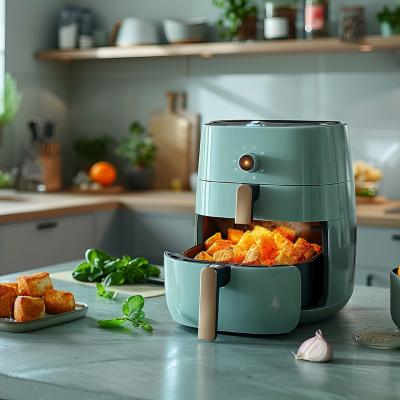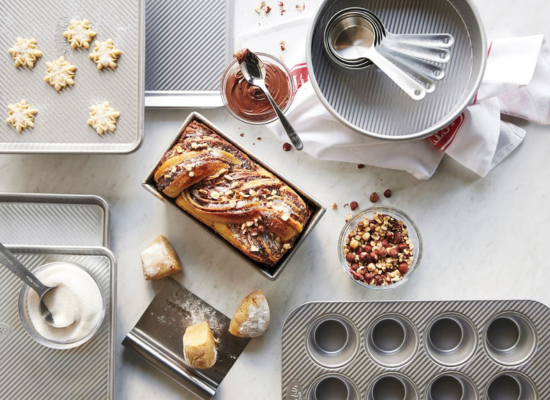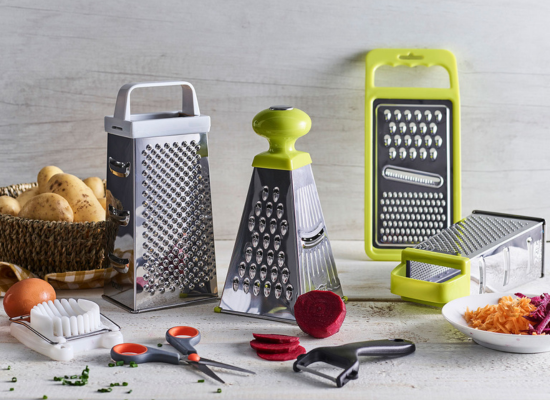
The answer to this question is yes, anodized aluminum cookware is safe to use. In fact, it may even be safer than some other materials, such as stainless steel. Anodized Aluminum cookware is made with Teflon which creates a barrier between the food and the aluminum. Moreover, the anodization process makes the surface of the cookware hard, scratch-resistant, and easy to clean.
Is Anodized Aluminum Safe for Health?
Anodized aluminum cookware is safe for your health and there are several reasons for being safe, such as:
Ingredients Used in Making Are Safe
Anodized aluminum cookware does not contain any harmful chemicals or coatings. The process of anodizing aluminum creates a protective coating on the metal.
This coating is made up of aluminum oxide, which is a safe and non-toxic substance. Additionally, the anodizing process actually makes the cookware more resistant to corrosion and scratches.
Anodizing Process
Anodizing is an electrolytic process that increases the thickness of a natural oxide layer on the surface of the metal. This layer acts as a barrier to prevent further corrosion of the metal.
Anodized aluminum cookware is safe because this process creates a non-reactive, durable surface that is resistant to scratches and wear.
The anodized aluminum cookware is also safe for cooking because it does not leach chemicals into food.
Anodized aluminum cookware is leach-proof because the anodizing process creates a non-reactive surface. This means that the aluminum will not leach into food, even when acidic foods like tomatoes, citrus fruits, or vinegar are cooked in it.
The anodized aluminum cookware is also safe for cooking because it does not release toxins when heated.
LEARN MORE: Is Die Casting Aluminum Cookware Safe?
Benefits of Using It Over Other Materials
There are a few benefits of using anodized aluminum cookware over other materials like stainless steel or non-stick surfaces, such as:
Anodized aluminum cookware is very durable. It is scratch and corrosion resistant, and it can withstand high temperatures. This makes it a great choice for cooking anything from delicate fish to thick steaks.
Non-stick surfaces are not as durable as anodized aluminum and they can be easily scratched or damaged. Stainless steel cookware is also not as durable as anodized aluminum, and it is more likely to corrode over time.
Even-heat Distribution
Another benefit of anodized aluminum cookware is that it conducts heat evenly. This means that your food will be cooked evenly, without any hot spots.
Non-stick surfaces can also have hot spots, which can cause your food to stick or burn. Stainless steel cookware also has hot spots, so it is not the best choice for cooking delicate foods.
Anodized aluminum cookware is very easy to clean. The smooth surface does not absorb food and it wipes clean easily.
Non-stick surfaces can be difficult to clean because food can get stuck in the pores of the coating. Stainless steel cookware is also difficult to clean because it tends to stain easily.
Affordable
Anodized aluminum cookware is very affordable. It is one of the most budget-friendly options on the market.
Non-stick cookware is usually more expensive than anodized aluminum, and stainless steel can be even more costly.
LEARN MORE: Is Granite Cookware Safe for Cooking?
Tips to Understand When Your Anodized Aluminum Cookware Is No Longer Safe to Use
If your anodized aluminum cookware is damaged, it is no longer safe to use. Signs of damage include:
Chipping or Peeling of the Anodized Coating
This means that the protective coating has been compromised and the aluminum is exposed. This can lead to corrosion and the leaching of toxins into food.
If you notice any chips or peeling of the anodized coating, discontinue the use of the cookware and replace it immediately.
Scratches on the Surface
Scratches on the pan’s surface might cause corrosion and the release of poisons into the meal. If any scratches appear on your anodized aluminum cookware, stop using it and replace it right away.
The Anodic Layer Is Damaged
The anodic layer is what gives the cookware its non-stick and durable qualities. If this layer is damaged, the cookware will be less effective and may release toxins into food.
If you are unsure of the thickness of the anodic layer on your anodized aluminum cookware, it is best to err on the side of caution and replace it.
Discoloration of the Pan
If the pan starts to discolor, it may be a sign that the anodized layer is no longer intact. This can lead to corrosion and the release of harmful toxins into your food.
If you notice any discoloration on your anodized aluminum cookware, discontinue use and replace it right away.
LEARN MORE: 10 Best Stainless Steel Cookware Sets
How to Cook With Anodized Aluminum Cookware at Its Finest
If you want to get the best food out of your anodized aluminum follow these tips:
Low Heat
Use low heat when cooking with your anodized aluminum cookware. This will prevent the food from sticking to the pan and help to avoid any damage to the non-stick surface.
Apply a small amount of oil or butter to the pan before adding food. This will help to create a barrier between the food and the pan, and will also help to prevent the food from sticking.
Avoid Using Metal Utensils
It is also important to avoid using metal utensils when cooking with anodized aluminum cookware. This can scratch the surface of the pan and cause it to become less non-stick. Instead, use wooden or silicone utensils.
LEARN MORE: Best Copper Cookware To Buy Online
Conclusion: Is Anodized Aluminum Cookware Safe?
To conclude, anodized aluminum cookware is safe to use because it is resistant to corrosion and scratches. It also does not leach chemicals into food.
However, if the cookware is damaged, it is no longer safe to use. Damaged cookware can release toxins into food which can be harmful to your health.



